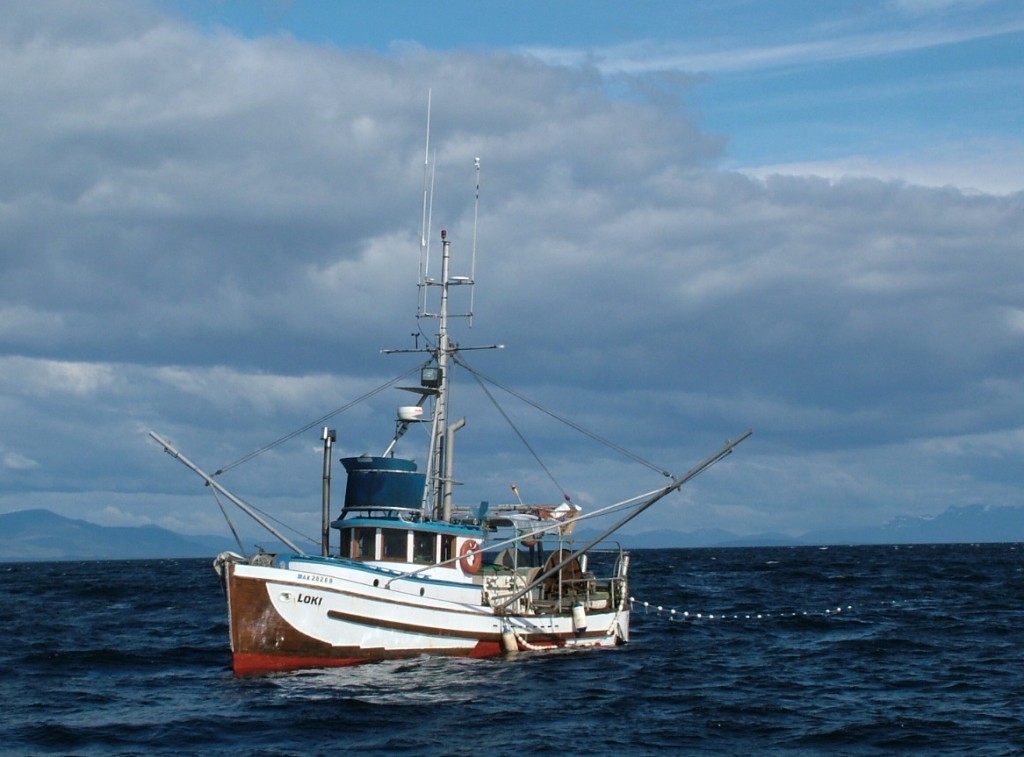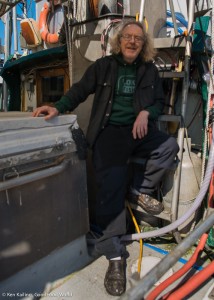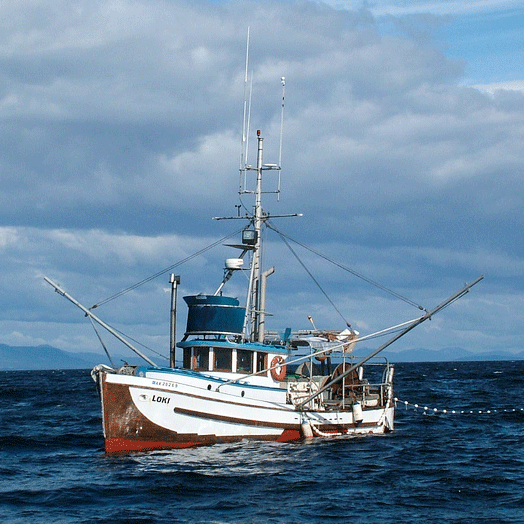It’s spring and the 2017 Alaska fishing season is upon us.
At GoodFood World, we have been intimately involved with Northeast Pacific Salmon fishing for some time. We recognize Loki Fish Company, a small family business in Seattle, as the best example of sustainable fishing and direct marketing of fish in our region. Loki Fish lives up to all our good food principles and more.
 Loki is suffering the same corporate threats every conscientious local natural food producer and handler faces these days. In response, Loki’s owner, Peter Knutson, published an essay of petition entitled, “Escaping the corporate net: Pragmatics of small boat direct marketing in the U.S. Salmon fishing industry of the Northeastern Pacific,” in the scientific journal, Marine Policy.
Loki is suffering the same corporate threats every conscientious local natural food producer and handler faces these days. In response, Loki’s owner, Peter Knutson, published an essay of petition entitled, “Escaping the corporate net: Pragmatics of small boat direct marketing in the U.S. Salmon fishing industry of the Northeastern Pacific,” in the scientific journal, Marine Policy.
We are very sympathetic to Pete’s position expressed in his essay and, in fact, believe the corporate net is closing on all food production now everywhere, and that this takeover of our food system should not be allowed by our government.
I wrote the following to Pete in support of his petition.
My position remains that:
1) we desperately need our fishery for local food security even more now with climate change, and
2) the way to restore the vitality of our fishery is through comprehensive ecological restoration, and
3) that you and other sensitive small boat fisher people including the Tribes are the best route to recovery, like small community-based agro-ecological farmers, and
4) that the expansion of industrial fishing and marketing as it is presently being done is a direct impediment to the food security of our entire region and perhaps the nation.
We care a lot about you guys. The time you’ve taken with us has endeared you and your family to us. We’ll continue to do the best we can to support your interests.
The big boat, corporate propaganda is everywhere these days, all driven by “world markets” out of control. We’ve seen it before. But in the past, the edge wasn’t so close and the resource appeared to some, inexhaustible. Why not put a top-down investment fish economy first and spread the wealth of the fast bucks — but one asks, to whom, always to whom, and what about the continued deterioration of habitat? No worry, we have industrial fish farming now with all the best high end technology.
Who talks about ecosystem carrying capacity? If the best honest fish scientists we have tell us we need to limit the catch sustainably, then how is it bigger factory boats with more gear are needed to catch the same appropriate number of fish?
And considering, the physical impact, small boat fishing has protected and even enhanced the natural northeast Pacific salmon habitat for generations. But what is a good investment for managing the salmon ecosystem sustainably is not a good corporate investment strategy especially where no one is picking up the damages and good fishing memories and local market enthusiasm is easily forgotten.
Tell me where the numbers show conservation is ever a good corporate strategy? And that’s the problem, the unearned increment. Do we value the salmon or not? Only if they are making us money. The goal is not keeping a supply of healthy natural salmon, it’s making money.
It’s uncanny how American consumers are so easily fooled these days by false advertising and how fast they adjust to the lowest common denominator. Or one wonders, did they ever have any taste? A popular commercial fishing trade magazine, National Fisherman, published the article, “Building boom: North Pacific makeover will generate billions.” (March 24, 2017). No thanks!
We at GoodFood World will stick with small boat fisher-people like Pete Knutson (a real salmon hero), the sustainable catch, all the sustainable fishing people with conscience and who are often in it for the love of fishing, and good fish in the water and on the plate.
As long as we both shall last, Pete, carry on.
Ken Kailing
Editor in Chief
GoodFood World
Read more about Loki Fish Company in Loki Fish Company: Building a Brand, One Fish at a Time

